#supremecourtjustice
Explore tagged Tumblr posts
Photo
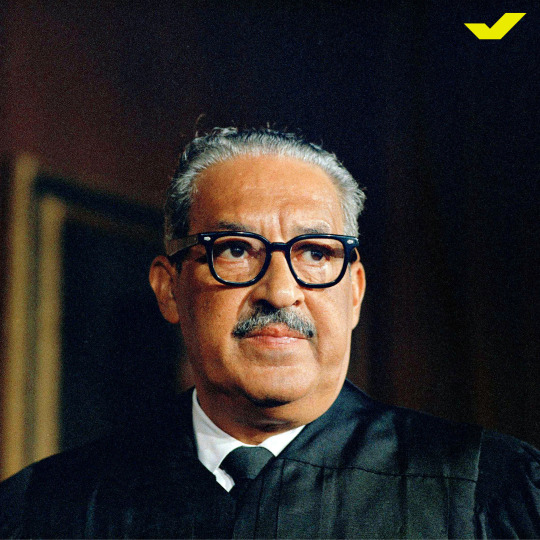
On this day in 1908, Supreme Court Justice Thurgood Marshall was born in Baltimore, Maryland
As the NAACP’s chief counsel from 1938 to 1961, Marshall argued more than a dozen cases before the Supreme Court, challenging racial segregation.
He won nearly all of these cases, including a critical victory in Brown v. Board of Education, in which the Supreme Court ruled that segregation violated the equal rights clause of the 14th Amendment to the Constitution.
6 notes
·
View notes
Text
⚖️✊🏿#ArtIsAWeapon
MOOD!
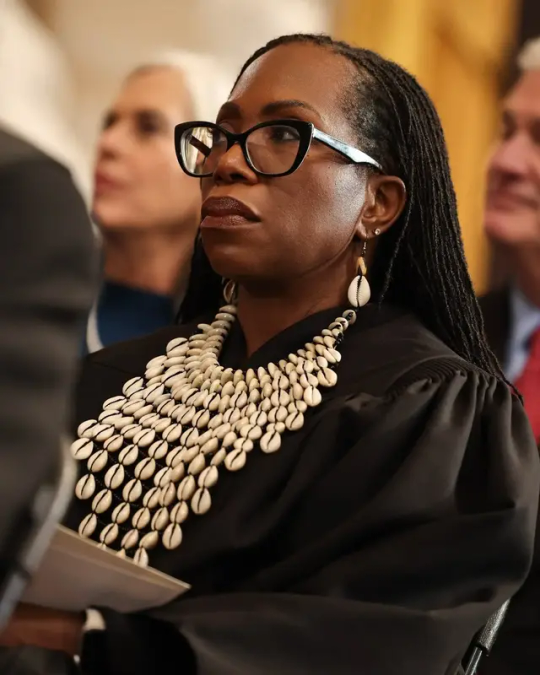
U.S. Supreme Court Justice Ketanji Brown Jackson made a bold fashion statement at the inauguration of #Felon47 yesterday! Rocking a fly ass judicial collar made of cowrie shells and matching earrings, her honor showed us what resistance can look like!
📷 Photo by @gettyimages
✍️🏾Story by @hannahjacksuhn for @voguemagazine
The Deeper Meaning Behind Justice Ketanji Brown Jackson’s Collar at the 2025 Inauguration
Supreme Court Justice Ketanji Brown Jackson chose a judicial collar loaded with symbolism for the 2025 Inauguration.
Over her black robes, the Justice wore a collar made of cowrie shells along with a pair of matching earrings. While the shell was used as currency in a variety of ancient cultures around the world, it was especially prized in African cultures, where it signified prosperity and protection. Meanwhile, the National Museum of African American History and Culture notes that, in America, the shell is thought to be a totem used to resist enslavement. Justice Jackson herself is a descendant of enslaved people. The connection feels particularly prescient on Martin Luther King Jr. Day, which happened to coincide with the Inauguration. (This has only happened once before, on Bill Clinton’s 1997 Inauguration Day.)
Beyond its status as a protective talisman, the cowrie is also associated with womanhood and fertility. During his first term, Trump—who was found liable for sexual abuse in May 2023—made continuous efforts to erode women’s rights, which included appointing Brett Kavanaugh, who was accused of attempted rape, to the Supreme Court. Even after Trump left office, his insidious, anti-women agenda continued to rear its head when the conservative-leaning Supreme Court overturned Roe v. Wade in June 2022.
While Justice Jackson has yet to explain the exact meaning of her Inauguration collar, the cowrie shell’s multiple meanings point to a sartorial expression of her dissent.
Read more:
#Justice Ketanji Brown Jackson#CowrieShells#Fashion#Resistance#BlackWomen#SupremeCourtJustice#ArtIsAWeapon
1 note
·
View note
Text
Supreme Court Justice Thurgood Marshall Swearing-In
On this day in 1967 Supreme Court Justice Thurgood Marshall was sworn in as the first Black Justice of the United States Supreme Court.
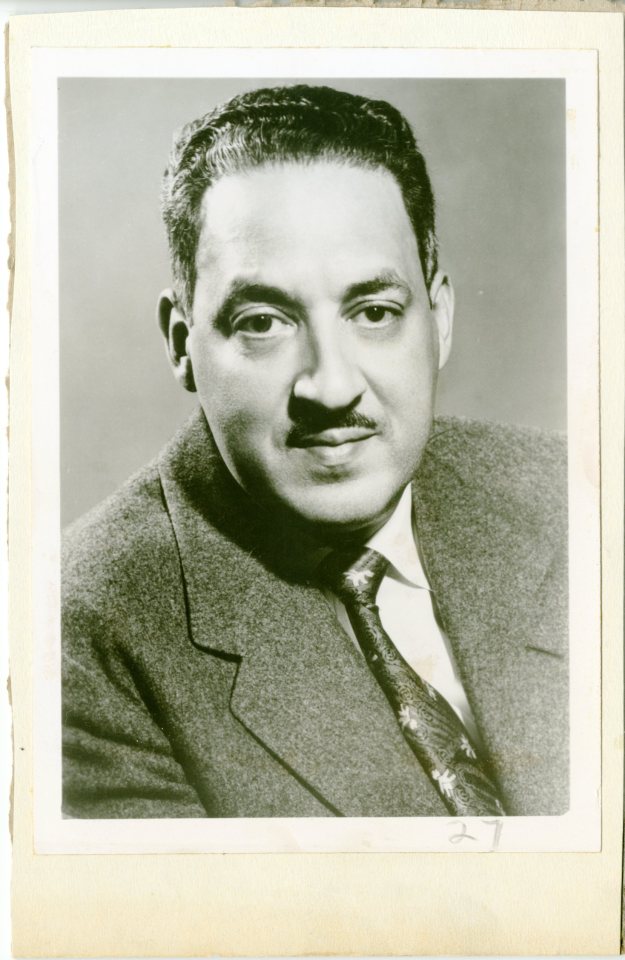


The second image shows Marshall at what appears to be the Amalgamated Clothing Workers Union Biennial Convention in 1954 shaking hands with Jacob Potofsky, President of Amalgamated with A. Philip Randolph and President of the Brotherhood of Sleeping Car Porters on the left. See also Marshall's correspondence with former ILR Professor Milton Konvitz!
#Archives#KheelCenter#SupremeCourt#US#USSupremeCourt#SupremeCourtJustice#ILR#CornellUniversity#ILRSchool#Cornell#LaborLaw#DigitalArchives#LaborHistory#Unions#LaborArchives#2024#LaborMovement#LaborRelations#Workers#ThurgoodMarshall
0 notes
Text
Analysis of: "Alito says Congress has no authority to police Supreme Court ethics" (Washington Post)
https://www.washingtonpost.com/politics/2023/07/28/alito-ethics-supreme-court-congress/
Justice Alito said in an interview that Congress has no authority to impose an ethics policy on the Supreme Court.
Alito hinted that other justices share his view but did not disclose if any have spoken publicly about it.
Recent reports of potential ethics breaches and luxurious vacations paid for by private donors have put the Supreme Court under scrutiny.
A bill seeking to impose ethics and disclosure rules on the Supreme Court passed a Senate committee vote along party lines.
While judicial independence is important, greater transparency and ethical oversight may be needed to maintain public trust in the Supreme Court.
There are valid arguments on both sides regarding Congress's authority to impose ethical requirements versus the Supreme Court's independence.
The situation raises potential tensions with constitutional principles of separation of powers and judicial independence.
The arguments from both sides exhibit some logical fallacies that weaken their reasoning.
It is difficult to definitively evaluate Alito's ethics based on the available information.
While Alito's intentions may be ethical, his reluctance to embrace transparency and dismissive responses suggest room for improvement.
Achieving the right balance between the competing interests will require thoughtful dialogue and a nuanced approach that considers all stakeholders fairly.
Any solutions will need to preserve the Court's core independence while ensuring appropriate oversight that maintains public trust.
Summary of the document:
Justice Samuel Alito said in an interview that Congress has no authority to impose an ethics policy on the Supreme Court.
Alito hinted that other justices share this view but did not disclose if any have spoken publicly about it.
Alito notes that he and other justices comply with disclosure statutes voluntarily but imposing an ethics code would be beyond Congress's powers.
Recent reports of potential ethics breaches and luxurious vacations paid for by private donors have put the Supreme Court under scrutiny.
A bill seeking to impose ethics and disclosure rules on the Supreme Court passed a Senate committee vote along party lines.
Alito's interview with the journalist who has a case before the Supreme Court has raised questions about ethics.
Constitutional scholars are split over the role Congress can play in prescribing ethics responsibilities for the Supreme Court.
Chief Justice John Roberts declined to appear before the Senate committee to discuss the bill, citing separation of powers.
Alito has turned to the Wall Street Journal opinion section to explain himself to the public amid allegations about his relationships and private trips.
Based on the details, tone, and type of information presented, this document appears to be a news article reporting on recent developments regarding Supreme Court ethics and Congress's attempt to impose disclosure requirements.
There are several indicators that point to this genre:
The document provides factual information and summarizes multiple perspectives on the issue from Justice Alito, other justices, Chief Justice Roberts, and constitutional scholars. This is typical of a news report seeking to provide an objective and balanced overview.
The tone is impartial and objective, presenting the varying viewpoints without explicitly taking a side. News articles aim for neutrality and avoid an argumentative or opinion-based tone.
The document uses quotations and summarizes comments from relevant figures to provide context and support for the information presented. News reports cite sources to substantiate their coverage of events.
The document covers a recent development - Justice Alito's remarks in an interview - and places it within the broader context of the ongoing debate around Supreme Court ethics. News articles aim to provide timely reports on newsworthy issues.
The document refers to "allegations" and "reports" surrounding Supreme Court justices, using language typical of news coverage of controversies and controversies.
Based on these various stylistic and structural characteristics, I conclude that the genre of this document is most likely a news report summarizing recent remarks by Justice Alito regarding Congressional authority to impose ethics requirements on the Supreme Court.
The situation described in the document reflects a conflict between two important principles: judicial independence and judicial ethics.
On the one hand, Supreme Court justices argue that Congress cannot impose ethical requirements on them because it would infringe on their independence as a separate branch of government. On the other hand, recent reports of potential ethical lapses and questionable relationships have led to calls for greater transparency and accountability. Some key takeaways:
Justice Alito's forceful comments that "Congress has no authority to impose an ethics policy on the Supreme Court" represent the view that ethical oversight by Congress would violate the separation of powers and judicial independence. However, Alito acknowledges that justices currently voluntarily comply with disclosure statutes.
Recent reports about potential ethics breaches and luxurious trips paid for by donors have put pressure on the Supreme Court to demonstrate greater transparency and ethics. This has led to the proposed bill in Congress seeking to impose disclosure rules on the Court.
There is a legitimate debate among constitutional scholars about whether Congress has the power to impose an ethics code on the Supreme Court. Reasonable arguments exist on both sides, citing factors like Congress's ability to affect the Court's budget and jurisdiction.
Chief Justice Roberts' refusal to testify before Congress on the bill reflects his view that independent branches should generally not interfere with each other, in line with principles of separation of powers.
Justice Alito's decision to publicly defend himself in the Wall Street Journal suggests he feels the Court has not adequately responded to concerns about its ethics, leaving justices to defend themselves individually.
In summary, there are legitimate interests on both sides of this issue. While judicial independence is crucial, greater transparency and ethical oversight may be needed to maintain public trust in the Supreme Court. The debate centers on how to balance these competing priorities in a way that respects the Constitution and democratic values.
The key stakeholders affected by this situation include:
Supreme Court Justices: They argue that imposing ethical requirements would infringe on their independence and separation of powers as the judicial branch. However, reports of potential ethical lapses have put pressure on the Court to demonstrate greater transparency. Evaluation: Justices have a valid interest in maintaining the Court's independence, but may also benefit from clear ethical guidelines to reinforce public trust.
Congress: They seek to impose ethical and disclosure requirements on the Court through legislation, citing the need for accountability. Evaluation: Congress has a legitimate role in overseeing the functioning of the judicial branch. However, they must be careful not to interfere with the Court's independence.
The Public: Greater transparency and ethical oversight of the Court could help build public trust and confidence in the justice system. Reports of potential ethical issues threaten the Court's legitimacy. Evaluation: Transparency and accountability are important democratic values, but the Court's independence also reassures the public that justice is administered objectively. Both factors contribute to public trust.
Litigants before the Court: They have an interest in knowing justices are following high ethical standards and impartially adjudicating cases without being influenced by potential conflicts of interest. Evaluation: Clear ethical guidelines and disclosures could reassure litigants that their cases are being judged fairly. However, imposing external oversight also poses risks of interference.
The Legal Community: Some feel the organized legal community has not adequately defended the Court against "nonsense" allegations, leaving justices to respond individually. Evaluation: Legal professionals play an important role in ethically policing the judiciary while also defending its independence when appropriate.
In summary, there are reasonable interests and trade-offs on all sides. While greater transparency and ethical oversight may be needed, any reforms must be implemented in a way that preserves the Court's core function of impartial justice and its constitutionally mandated independence. A balanced approach that considers the perspectives of all stakeholders may be the best way forward.
Based on the document, the situation raises potential tensions with two key principles of the U.S. Constitution:
Separation of powers - The Constitution establishes three separate but equal branches of government: the legislative, executive, and judicial branches. The document suggests that imposing ethics requirements on the Supreme Court could violate this separation of powers by having the legislative branch interfere with the judicial branch. Justice Alito explicitly argues that "No provision in the Constitution gives them the authority to regulate the Supreme Court." However, Congress's power of the purse and ability to set the Court's jurisdiction indicate some level of permissible oversight. The debate centers on where to draw the line between independence and accountability.
Judicial independence - The Constitution establishes the Supreme Court as an independent judiciary, free from interference by the other branches. Justice Alito and possibly other justices feel that imposing ethics requirements would infringe on this independence. Chief Justice Roberts' refusal to testify also reflects this view. However, the Constitution does not explicitly exempt the Court from all forms of oversight. Some argue Congress has the authority to impose "reasonable regulations" in the public interest, as long as core judicial functions remain independent.
In summary, the situation highlights the need to balance two foundational constitutional principles: separation of powers/judicial independence on the one hand, and transparency/accountability on the other. There are valid arguments on both sides, and no clear answers in the constitutional text. Any solutions will need to preserve the Court's core independence while ensuring appropriate oversight that maintains public trust. The Supreme Court itself may need to provide more clarity on where it feels the constitutional boundaries lie.
Overall, the described situation raises legitimate and complex constitutional issues that stem from tensions inherent in the U.S. system of checks and balances. Reasonable people can disagree on how to best interpret and apply broad constitutional principles in this specific context. An open and respectful debate that carefully weighs constitutional text, structure, history and precedent could help chart a sensible path forward.
Based on the description, there are a few potential logical fallacies in the situation:
Appeals to tradition - Justice Alito and possibly other justices argue that Congress cannot impose ethics requirements because there is no tradition of such oversight. However, just because something has never been done before does not make it unconstitutional. Appeals to tradition can be a fallacy. Evaluation: While tradition and past practice are relevant considerations, they are not determinative. The Court should provide substantive legal and constitutional reasoning to support its position.
Special pleading - Justice Alito argues that Congress cannot regulate the Supreme Court but acknowledges that Congress can regulate lower federal courts. This unequal treatment of similar cases is a form of special pleading fallacy. Evaluation: Justice Alito does not provide a principled reason why the Supreme Court should be exempt from Congressional oversight that applies to other courts. This inconsistency weakens his argument.
Genetic fallacy - Critics argue that calls for Supreme Court ethics requirements represent a "ploy to delegitimize an increasingly conservative court." This judges the proposal based on its perceived motive rather than the merits of the idea itself, which is a genetic fallacy. Evaluation: The motivations behind the proposal are irrelevant. What matters is whether imposing ethics requirements on the Court is legally justified and practically beneficial, regardless of political motivations.
Black-and-white thinking - Both sides of the debate engage in some degree of black-and-white thinking by framing the issue as a choice between full independence vs. full oversight. In reality, there are likely nuanced positions between these extremes. Evaluation: A more balanced and moderate approach that seeks compromise between competing interests, without compromising the Court's core functions, may be possible. The "all-or-nothing" framing of the debate is overly simplistic.
In summary, while both sides raise valid considerations based on Constitutional text and structure, some of the reasoning exhibits logical fallacies that weaken the persuasive force of the arguments. A more nuanced and substantive debate focused on legal principles rather than political posturing or appeals to tradition could help move the situation toward a reasonable resolution.
Based on the details in the document, it is difficult to definitively evaluate Justice Alito's ethics. Some of the key considerations regarding his ethics are:
Alito argues that Congress cannot impose ethics requirements on the Supreme Court. However, he acknowledges that he and other justices voluntarily comply with existing disclosure statutes. This suggests he believes in at least some degree of ethical and transparency requirements.
Recent reports have questioned Alito's relationships with private donors who may have cases before the Court, including a luxurious trip paid for by a prominent hedge fund manager. Alito defended the trip as "personal hospitality" exempt from reporting. However, critics argue such relationships could pose conflicts of interest.
Alito chose to publicly defend himself in the Wall Street Journal, criticizing "nonsense" that had been written about him. This suggests he feels pressure to defend his reputation and clarify his actions amid recent scrutiny.
Alito's long interviews with a journalist who has an upcoming case before the Supreme Court have raised some eyebrows. However, the journalist's disclosure of the pending case reduces some of the potential conflict.
There is no indication Alito has actually ruled inappropriately in any cases involving people or groups with whom he has relationships. But some argue mere appearance of potential conflicts is itself problematic.
Alito has served on the Supreme Court for over 15 years without any confirmed misconduct. However, recent revelations and lack of transparency make a full evaluation of his ethics difficult.
In summary, Justice Alito appears to believe in some level of ethical responsibilities and has followed existing disclosure requirements. But questions remain about whether he has been sufficiently transparent regarding relationships that could pose conflicts of interest. There is no evidence he has directly violated ethical standards, but critics argue he has not gone far enough to alleviate concerns and maintain public trust. A lack of clear ethical guidelines for the Court as a whole contributes to the uncertainty surrounding Alito's situaion. More information would be needed for a definitive evaluation.
In conclusion, while Justice Alito's intentions may be ethical, his reluctance to embrace stronger transparency measures and dismissive characterization of some concerns as "nonsense" suggest room for improvement in his approach. Greater care regarding potential conflicts of interest and a willingness to address public concerns in a thoughtful manner would likely enhance perceptions of his ethics. However, a full and fair evaluation would require more details about his conduct and motivations.
wAwJqFOCLPhJMxgAKJoF
#SupremeCourtEthics#JudicialIndependence#CongressionalOversight#SeparationOfPowers#Transparency#Accountability#JusticeAlito#SCOTUS#SupremeCourtNews#ChecksAndBalances#Constitution#Government#LegalNews#Congress#SenateJudiciaryCommittee#ChiefJusticeRoberts#SupremeCourtJustices#BalanceOfPowers#PublicTrust#EthicsAndIntegrity#ConflictOfInterest#CongressHasNoAuthority#NonsenseAllegations#AppealToTradition#SpecialPleading#GeneticFallacy#BlackAndWhiteThinking#Debate#ComplexIssue#ConstitutionalPrinciples
1 note
·
View note
Text
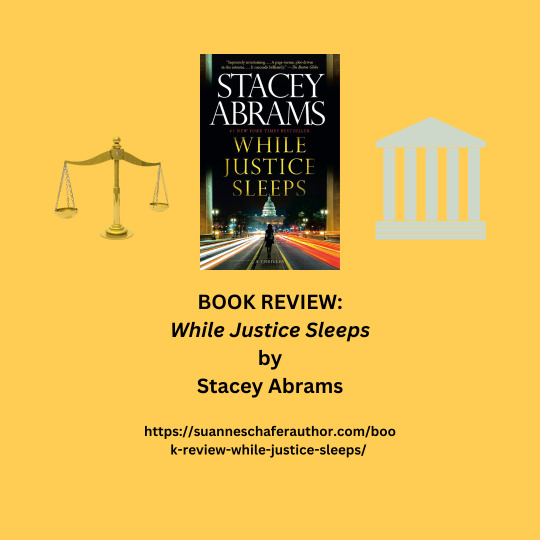
ICYMI: BOOK REVIEW of #WhileJusticeSleeps by #StacyAbrams. A tense legal thriller involving a #SupremeCourtJustice lying in a coma while his legal clerk solves the mystery of how he got there. https://suanneschaferauthor.com/book-review-while-justice-sleeps/
@staceyabramsGA @doubledaybooks
#bookstagram#am reading#Bioengineering#PoliticalThrillers#SupremeCourt#GeneticBioengineering#EthicsOfGeneticBioengineering#feminism#thrillers
2 notes
·
View notes
Text
Brazil Supreme Court Justice Investigating Elon Musk Over Fake News and Alleged Obstruction
Click the link below to know more
#latestnewsfeed #latestupdates #latest #LatestUpdates #latestupdates #elonmusk #brazil #brazilsupremecourt #supremecourtjustice #SupremeCourt #supremecourtbrazil
0 notes
Text
I don't think the majority of the #SupremeCourtJustices we have now (Republicans) are the cream of the crop, nor top of their class. they are neither curious nor skilled in applying the law equitably.
0 notes
Text
The hardest decision

The hardest decision a woman can make isn't yours
https://www.instagram.com/p/CfWla-aKWbH/
#righttochoose#supremecourtjustice#roevswade#womensrights#illustration#wealreadyfoughtforthis#editorialillustration#roe#abortionrights#abortionishealthcare#womenmatters#abortionisawomansright#girlsmatter#abortionban#ruthbaderginsburg#supremecourt#abortionisahumanright#artists on tumblr#illustrators on tumblr
38 notes
·
View notes
Photo

In honor of Supreme Court Justice Ruth Bader Ginsburg, we've pulled a few recommendations based on her life and message. Remember you can register to vote at any of our Libraries, and the deadline to do so is October 5. Vote. #osceolalibrary #librarybooks #ruthbaderginsburg #RBG #RIP #RIPRBG #restinpower #supremecourtjustice #inmemoriam #bookrecommendations #equality #voting #registertovote #govote https://www.instagram.com/p/CFZtPZ1BkMA/?igshid=1l1s8zoxw863c
#osceolalibrary#librarybooks#ruthbaderginsburg#rbg#rip#riprbg#restinpower#supremecourtjustice#inmemoriam#bookrecommendations#equality#voting#registertovote#govote
6 notes
·
View notes
Photo
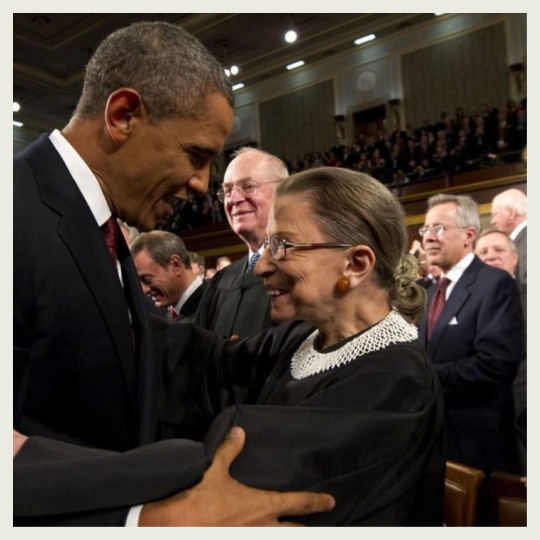
Thinking of this tiny giant of a woman on what would have been her 90th birthday ✨
4 notes
·
View notes
Photo

"Women belong in all places where decisions are being made" - Justice #RuthBaderGinsburg • #RBG #unheardvoicesmag #womensrights #rip #SupremeCourtJustice https://www.instagram.com/p/CFUlBW0lCWE/?igshid=oh6h4k05buzj
2 notes
·
View notes
Video
Breaking world news very sad day in America we have lost a truly iconic woman Justice Ruth Bader Ginsberg has died at the age of 87 years old @ripruth #supremecourtjustice @americaisMourningthelossofruthbadergi nberg. #rgb #youwillbemissed @allyouneedtoknowradio @johnhollywoodradio @johnallyouneedtoknow @waranchnunn @a_red_solo_pup @maureenv #americaiscrying #allyouneedtoknowradio https://www.instagram.com/p/CFTBpCdBykK/?igshid=o3vbdvqkyas9
2 notes
·
View notes
Photo

A supporter of President Trump and Pro-Life points to the sky thanking GOD for having Judge #AmyConeyBarrett confirmed as a new #SupremeCourtJustice, she is celebrating with many other #ProTrump supporters outside the U.S. Supreme Court in Washington, D.C. / Una partidaria del Presidente Trump y Pro-Vida señala hacia el cielo agradeciendo a DIOS por haber elegido a la Jueza Barrett como nueva la Jueza de la Corte Suprema de Justicia de Estados Unidos, ella junto a otros seguidores del presidente Trump celebran en olas fueras dela Corte Suprema en Washington, D.C. * * * #NorthAmerica #EverydayUSA #USA #EEUU #HansLucas #FreelancePhotographer #USPolitics #Photojournalism #OlymousOMD #OlympusCamera #RepublicanParty #Olymopus #2020elections #HansLucas_USA #Vote2020 #JuanCarlos #2020Copyright * * * © Juan Carlos - All Rights Reserved / Todos los Derechos Reservados * * * Represented by Hans Lucas @studiohanslucas/@hl_latinamerica (France) and @beelduine De Beeldunie (Netherlands) https://www.instagram.com/p/CG2rmlgn4Tu/?igshid=ckl2gr8pgm2u
#amyconeybarrett#supremecourtjustice#protrump#northamerica#everydayusa#usa#eeuu#hanslucas#freelancephotographer#uspolitics#photojournalism#olymousomd#olympuscamera#republicanparty#olymopus#2020elections#hanslucas_usa#vote2020#juancarlos#2020copyright
1 note
·
View note
Text

BOOK REVIEW: #WhileJusticeSleeps by #StacyAbrams. A tense legal thriller involving a #SupremeCourtJustice lying in a coma while his legal clerk solves the mystery of how he got there. https://suanneschaferauthor.com/book-review-while-justice-sleeps/
#Bioengineering#PoliticalThrillers#SupremeCourt#GeneticBioengineering#EthicsOfGeneticBioengineering#bookstagram#am reading#feminism#womensfiction
0 notes
Photo

Reposted from @crissyybarra1970 Reposted from @richbusha call you representatives and let them know that this is completely ludacris. Health care, civil rights, womens rights, equal rights is on the line while millions of Americans are in absolute dire straits - they can't pass #covid_19relief💒🌉💒🌁💌💧💁 but rush a #supremecourtjustice #voteblue #equalrights #civilrights #healthcare #preexistingconditions #dumptrump https://www.instagram.com/p/CFddUuDpAYU/?igshid=1wpp0rceal3xn
#covid_19relief💒🌉💒🌁💌💧💁#supremecourtjustice#voteblue#equalrights#civilrights#healthcare#preexistingconditions#dumptrump
1 note
·
View note
Photo
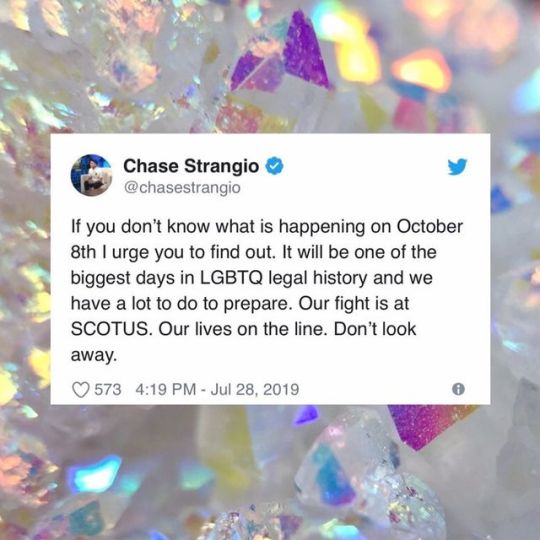
✨ʜɪsᴛᴏʀʏ ɪɴ ᴛʜᴇ ᴍᴀᴋɪɴɢ✨ Depending on which state we live in LGBTQ+ individuals “are”protected from discrimination in their workplace at STATE LEVEL to a degree (three cases specifically being heard by Supreme Court Georgia, Michigan and New York) As of now no such protections exist on a federal level. Title VII civil rights Act (1964) “prohibits employment discrimination based on race, color, religion, sex and national origin” although this clause may be intended to cover sexual orientation and gender identity, it’s not functioning properly in many states and obviously not at federal level. PAY ATTENTION! Our safety is on the line, our rights are on the line and our livelihood in the workplace are on the line! . . #supremecourtjustice #spreadlove #nothate #civilrights #civilrightsactivist #lgbtqrights #lgbtq #workplacewellness #workplaceculture #workplaceviolence #civilrightsmovement #socialjustice #makechange #createchange #empowerment #wearestrongertogether https://www.instagram.com/p/B09PcXkl70d/?igshid=rkni26aceqcc
#supremecourtjustice#spreadlove#nothate#civilrights#civilrightsactivist#lgbtqrights#lgbtq#workplacewellness#workplaceculture#workplaceviolence#civilrightsmovement#socialjustice#makechange#createchange#empowerment#wearestrongertogether
2 notes
·
View notes